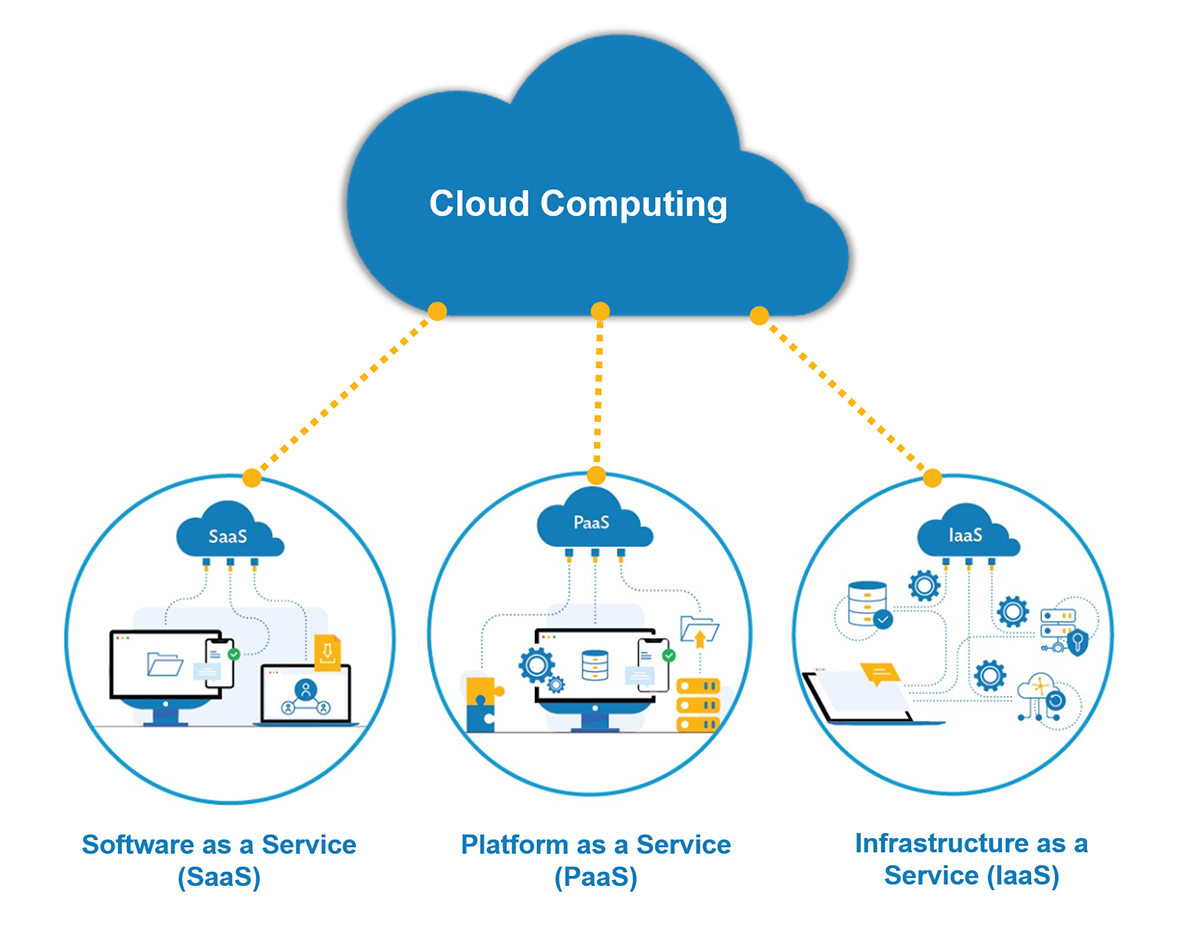Take Full Advantage Of Effectiveness with LinkDaddy Cloud Services for Your Service
Take Full Advantage Of Effectiveness with LinkDaddy Cloud Services for Your Service
Blog Article
Utilizing the Potential of Cloud Services for Competitive Side on the market

Benefits of Cloud Solutions
Cost-efficiency is another significant benefit of cloud services, as companies can avoid large upfront financial investments in equipment and software. On the whole, the advantages of scalability, versatility, and cost-efficiency make cloud solutions a beneficial property for companies seeking a competitive edge in today's dynamic market landscape.
Cloud Movement Methods
Cloud migration needs careful planning and seamless implementation to guarantee a smooth shift of digital assets to cloud-based environments. Organizations embarking on this journey needs to first conduct a detailed evaluation of their existing IT facilities, applications, and data to figure out the most suitable migration strategy. One usual strategy is the "Raise and Shift" method, where existing systems are transferred to the cloud without significant alterations. This strategy offers a fast movement procedure however may not totally utilize the advantages of cloud-native attributes.
Alternatively, the "Replatforming" strategy entails making minor adjustments to applications to maximize their efficiency in the cloud atmosphere. This approach strikes a balance in between rate and optimization, permitting organizations to take advantage of cloud capacities while minimizing disruptions.
For even more complex systems, the "Refactoring" approach, likewise referred to as "rearchitecting," includes upgrading applications to be cloud-native. While this strategy requires more time and sources, it can maximize the benefits of scalability, flexibility, and cost-efficiency that cloud platforms offer.
Eventually, picking the appropriate cloud movement approach relies on variables such as the company's goals, budget plan, timeline, and technological demands. By meticulously reviewing these considerations, companies can efficiently transition to the cloud and acquire an one-upmanship on the market.
Enhancing Information Safety Measures
After implementing cloud migration approaches, organizations must prioritize enhancing information safety and security measures to protect their digital assets click for more efficiently. universal cloud Service. Information safety is extremely important in the digital age, especially when leveraging cloud services that involve transferring and keeping sensitive info.
Routine security audits and vulnerability analyses are vital to determine and attend to any powerlessness in the data protection infrastructure quickly. Training employees on ideal methods for information security and applying rigid gain access to controls can also alleviate the risk of internal data violations. By buying robust data protection procedures, organizations can infuse depend on why not try these out amongst their stakeholders and consumers, inevitably acquiring a competitive edge in the marketplace.
Leveraging Cloud for Scalability
Applying cloud solutions permits organizations to dynamically readjust resources according to demand, improving scalability and enhancing operational efficiency. Scalability in the cloud context refers to the capability to quickly and conveniently rise or reduce sources as needed, supplying services with the adaptability to fulfill transforming requirements.
Moreover, leveraging cloud scalability enables companies to react promptly to market changes, seasonal needs, or unanticipated development, ensuring undisturbed service delivery without sustaining unneeded costs. By scaling sources up or down in real-time, companies can keep optimal performance degrees while controlling expenditures. In addition, scalable cloud services equip business to innovate rapidly, deploy brand-new applications efficiently, and adapt to progressing service requirements with dexterity. In general, embracing cloud scalability is a tactical step that cultivates competition and placements services for sustainable development in today's vibrant market landscape.

Applying Cloud-Based Partnership
Partnership in modern service atmospheres has actually gone through a considerable improvement with the integration of cloud-based modern technologies. Cloud-based partnership tools have actually revolutionized the means teams collaborate, using real-time interaction, file sharing, and task monitoring capabilities no matter of physical location. By executing cloud-based cooperation remedies, organizations can improve productivity, boost efficiency, and streamline process.
One of the crucial advantages of cloud-based collaboration is its capability to break down useful reference interaction obstacles amongst employee. With features like instantaneous messaging, video clip conferencing, and digital white boards, workers can collaborate perfectly and remain connected despite where they lie. In addition, cloud-based cooperation devices promote easy access to shared resources and documents, enabling team participants to interact on jobs in a simultaneous manner.
Additionally, cloud-based cooperation advertises versatility and dexterity within organizations by making it possible for remote job and fostering cross-functional team effort. Employees can team up in real-time, share responses promptly, and make decisions jointly, leading to quicker analytic and better advancement. On the whole, applying cloud-based collaboration is important for contemporary businesses looking to remain competitive in today's interconnected and busy market landscape.
Conclusion
In conclusion, the utilization of cloud solutions supplies many advantages for companies looking for an one-upmanship in the market. By carrying out cloud migration methods, enhancing data safety procedures, leveraging scalability, and making use of cloud-based cooperation, services can enhance effectiveness, reduce expenses, and remain in advance of the competitors. Welcoming the potential of cloud solutions is vital for organizations aiming to succeed in today's swiftly advancing organization landscape.
The ability to harness the potential of cloud solutions uses companies countless advantages, from boosted dexterity and scalability to enhanced partnership and information safety. As companies navigate the complexities of cloud movement and discover ingenious means to leverage cloud modern technology, the question occurs: Exactly how can businesses efficiently utilize cloud services to not only maintain up with but likewise exceed their rivals in the dynamic marketplace?
Additionally, the adaptability supplied by cloud services permits companies to access information and applications from anywhere, advertising remote work and collaboration amongst groups found in various geographical places. - universal cloud Service
By implementing cloud movement methods, improving information safety measures, leveraging scalability, and utilizing cloud-based collaboration, businesses can enhance efficiency, minimize expenses, and remain ahead of the competitors. Accepting the capacity of cloud services is necessary for organizations looking to be successful in today's swiftly developing service landscape.
Report this page